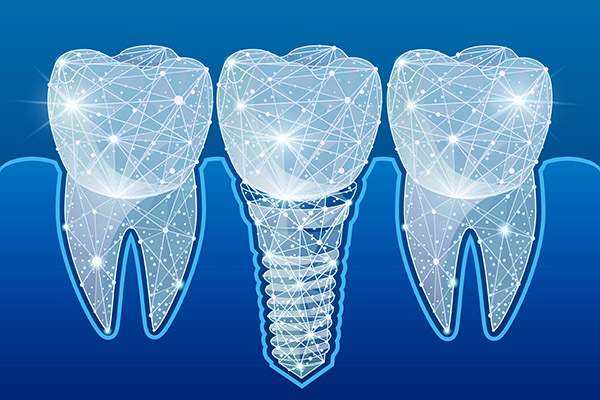What are the possible complications of dental implants?
Overall, complications from dental implants are fairly rare. When they do occur, some are seen more often than others.
Osseointegration failure
For the implant to succeed, it has to bond completely with the jawbone. This process is called osseointegration and takes several months to complete. Osseointegration can fail if there is insufficient bone density in the person's jaw or if there is too much stress on the implant. If the process fails, the implant can become loose or fall out completely.
Bacterial infection
The human mouth is home to hundreds of species of bacteria, some of which have the potential to cause infection. The site of implantation is vulnerable to invasion from pathogens such as these. An infection of the surgical site can cause pain and systemic symptoms, such as fever or chills. There is also a chance that the infection could get into the bloodstream and spread to other areas of the body. A widespread infection is more difficult to treat and could become life-threatening.
Nerve damage
An operation sometimes causes damage to nerves that are nearby. In the case of dental implants, this can happen because the instrumentation gets too close to the nerve. Damage to nerves can be permanent if not addressed right away, so patients should report any numbness of the mouth or excess pain immediately.
How can patients prevent complications?
Persons undergoing a dental implant should find out what to expect during and after the procedure to understand what is normal and what is not. Anything unexpected should be reported as soon as possible. When in doubt, it is better for a patient to speak up than to remain silent and possibly allow the damage to worsen.
Implant patients should receive instructions for caring for the surgical site as it relates to their hygiene and behaviors. Patients should follow these directives as closely as possible, keeping the site clean and avoiding certain foods as instructed. Each individual should inspect the site according to the guidance provided. In particular, the patient should watch for signs of infection, such as unusual redness, swelling, pain, and drainage of pus from the surgical site. The patient should also monitor for systemic signs of infection.
The patient should manage any existing conditions that could negatively affect healing, such as diabetes. Since tobacco can also interfere with healing by depleting blood oxygen and irritating gum tissue, patients should stop smoking prior to the implant procedure.
If there is an insufficient bone density to support an implant, a bone graft to strengthen the jaw may be possible. It takes several months following the graft for the bone to become strong enough to support an implant.
Conclusion
The success rate of the procedure to place dental implants is typically very good. Most persons who are vigilant about following the instructions they receive for aftercare do not experience complications.
Request an appointment or call Hudson ER Dental at 201-620-9574 for an appointment in our Bayonne office.
Related Posts
Dental implants are one of the options you get to choose from if you are missing one or more teeth. A growing number of people are opting for implants thanks to the convenience that comes with them and their bone tissue preserving properties. Dental implants are rods/screws that are inserted into the jawbone to serve…
Dental implants offer individuals the opportunity to regain a fully functioning set of teeth. The aftercare procedures are imperative to ensure the surgical area heals and implant osseointegration occurs. Osseointegration is the process by which the bone in the jaw fuses with the implant posts. This creates the solid foundation needed to support the apparatus.…
For individuals who need to restore or replace damaged or missing teeth, dental implants are lasting, high-quality restoration options. The process can be lengthy from start to finish, but this dental appliance gives patients results worth waiting for. However, without the right aftercare, an infection can form and cause extreme discomfort to a patient. Proper…
